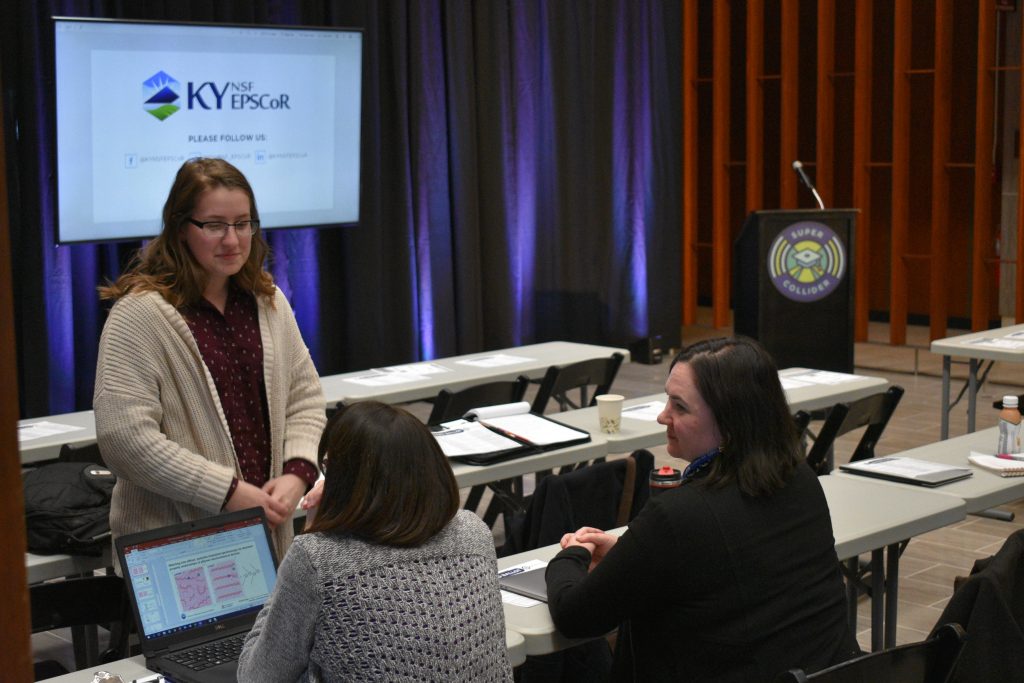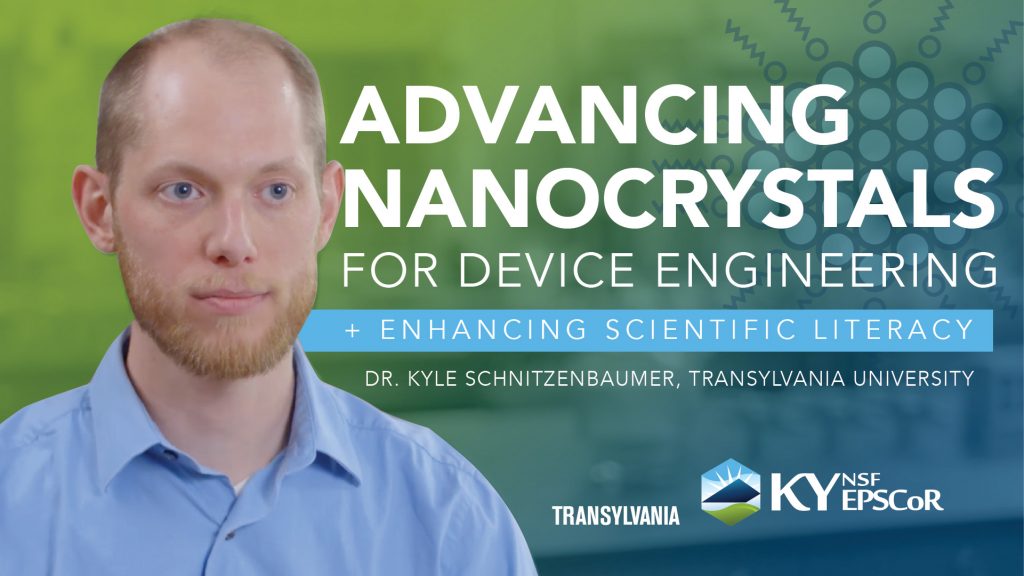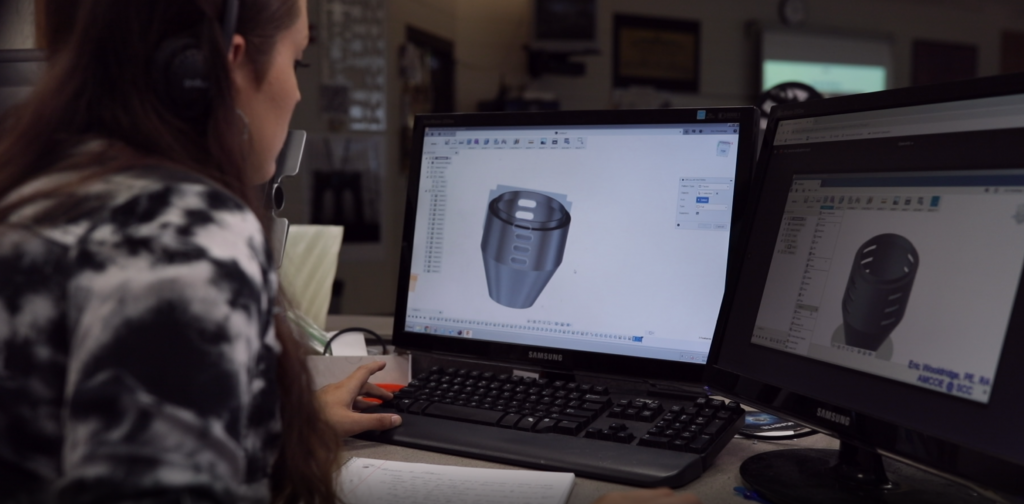How Dr. Kazi Javed took a small KY NSF EPSCoR grant for nanotube research at UK CAER and evolved it into a program at KSU supporting hundreds of undergraduate students.
Written by Kevin Puckett, Senior Creative Communication Strategist at UK CAER and KY NSF EPSCoR / Header Illustration by Kevin Puckett
A catalyst is a substance enabling a reaction to proceed at a faster rate or under different conditions than normally possible. Dr. Kazi Javed served as a catalyst of Kentucky State University’s Peer-Led Team Learning (PLTL) program—precipitating the achievements of hundreds of undergraduate students in a robust program, primarily supporting under-represented minority students in STEM fields. In July 2022, Dr. Javed retired, concluding his work as a teacher, mentor, and leader. This is Kazi’s story—although he’s too humble to admit that, so let’s phrase it another way—this is a story of a professor, a small Historically Black University (HBCU), KY NSF EPSCoR, and students propelling each other into STEM success.
Kazi came to Kentucky State University in 1996 to teach chemistry. While he loved his work as a professor, he questioned parts of the educational system, particularly for those struggling. He looked for new ways to connect and edify students outside the classroom. His answer came through teaching college prep summer courses at The Kentucky Governor’s Scholar Program (GSP), which selects the top students around the Commonwealth and places them in a college setting. Together, students solve problems with little assistance from educators.
“This blew me away,” gleamed Kazi. “I saw firsthand, through Governor’s Scholars, the power of a learning community. They learn, ‘I have my peers! I can be a little off, [but] there are others just like me!’”
Inspired by three summers at GSP, Kazi was ready to implement this learning community concept at KSU. While GSP focused on many disciplines, Kazi wanted to focus solely on STEM because of the severe under-representation of minorities in the field. Creating a program from scratch was difficult. Kazi knew learning communities weren’t novel ideas but finding a program suitable to emulate and sell to administrators proved to be a challenge—a challenge solved when Kazi discovered the work of UCLA’s Dr. Uri Treisman.
Treisman created a model using collaborative learning and small-group teaching methods for minority students. This trickle-down theory of education started with faculty selecting peer-leaders, then led to peer-leaders teaching the other students. Treisman’s model was the inspiration for what would later become PLTL.
Still burning with the desire to research, Kazi received a small support grant in the mid-2000s from KY NSF EPSCoR and chose to work with Dr. Rodney Andrews (current KY NSF EPSCoR Program Director) at the University of Kentucky carbon nanotube laboratory. As part of the grant, Kazi led three undergraduate students in research each summer. This lab is where it all clicked.

“The learning community and the research experience started coming together,” says Kazi. “I asked myself, ‘Is there a way we could do this at KSU and support more students?’”
There was still a steep mountain to climb—funding. Due to a lack of research infrastructure, KSU struggled to receive grant support. Kazi kept sending students to UK and the University of Louisville every summer but struggled to get his program off the ground. With time, however, the summer research connections proved invaluable.
“Based on the carbon nanotube work, in 2011, we got an invitation from Bruce Hinds at UK (former Track-1 co-I),” Kazi said. “I had found just the right avenue to make a pitch for our program through KY NSF EPSCoR. It was a marriage made in heaven.”
Kazi’s funding pitch, in the second year, was approved. The PLTL program was born and now offered under-represented minorities a support system. What began as a small grant for nanotube research was now helping dozens of students excel. Graduation rates for PLTL students soared to over 75%, and participation in the program increased from 35 students a year to 50.

“We tweaked a learning community model—students get a stipend based on their individual performance. They must attend 30 hours of workshops per semester. They become mentors and mentees,” says Kazi. “We cater it to our student body with several committed faculty. Our first goal is to make sure they get their bachelor’s degree in STEM, which is NSF’s mission. The second goal…is to get as many students as we can into graduate school.” Summer interns from KSU flocked to UK and UofL labs in the summer—what Kazi calls the “STEM pipeline.” National Science Foundation funding reviewers lauded the program for its mission, results, and personal touch.
The personal touch came from Kazi.
“I can honestly tell you, by the time two to three weeks roll around in the semester, I get to know each one of the students on a personal level,” Kazi says, welling up. “I do not micromanage them. I tell them what the goals are. It is an honor, and the glory goes to EPSCoR.”
With the pride of a father, Kazi narrates student stories. He speaks about the character and dedication of one student, who despite his mother passing away a month before, chose to present his work at nanoCollider in 2020 during a pandemic. He speaks of a young student failing the PLTL program the year before, coming to him in the hallway, and betting him money that he would come back next semester. He did and he graduated. “There are countless others,” Kazi says.
With Kazi’s retirement, Dr. Suzette Polson, his longtime faculty colleague, is picking up the torch. “Dr. Polson has been coordinating the PLTL organic and biochemistry workshops since the inception of the program. I trust she will continue to grow the program. If it continues to have the impact, it is still worth supporting. For the STEM pipeline, and as the only HBCU university in the Commonwealth, it is incredibly important to do the best we can for our STEM students to succeed. I’ll be rooting for their success in every way I can.”
Dr. Kazi Javed isn’t comfortable with the spotlight. He gives all the credit to the students who have grown PLTL in the last decade. This humility emanates in Kazi and is perhaps the real power behind the success of the program—the real catalyst of its success.
“I mean this from the bottom of my heart, it’s not about me. It’s about how we started, how we performed, and how we can sustain it. I’d like to think of myself simply as the catalyst.”
Feature video on PLTL produced by KY NSF EPSCoR in 2018




